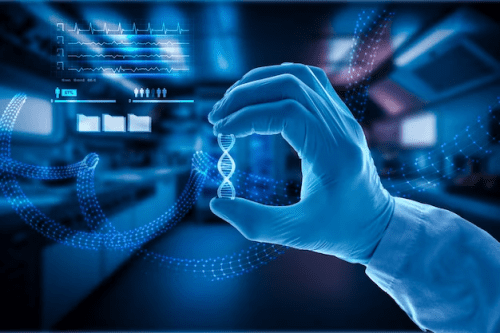
NANOmedX: Future of Drug Delivery
NANOmedX: Future of Drug Delivery
The forefront of medical innovation at the NANOmedX program on the Future of Drug Delivery with Nanotechnology. This exclusive event offers a dynamic platform for researchers, clinicians, and industry experts to delve into the revolutionary world of nanomedicine. Through engaging talks,demonstrations, and collaborative discussions, participants will gain profound insights into the limitless potential of nanotechnology in shaping the future of drug delivery. Explore cutting-edge advancements, exchange visionary ideas, and forge connections that accelerate the translation of nanomedical discoveries into tangible healthcare solutions.
Aim: The aim of the NANOmedX program is to illuminate the game-changing role of nanotechnology in drug delivery. By fostering knowledge exchange and collaboration, the program empowers participants to leverage nanomedicine’s potential for precise and effective therapies, bridging the gap between research and real-world applications to advance patient care.
Program Objectives:
- Understand the fundamental principles of nanotechnology in drug delivery.
- Design and evaluate nanoparticle systems for targeted drug delivery.
- Address the safety and ethical implications of nanomedicine.
- Apply knowledge of nanomaterials to solve real-world health challenges.
- Stay abreast of emerging trends and technologies in nanomedicine.
What you will learn?
Module 1:
Session 1: Introduction to Nanotechnology in Drug Delivery
● Overview of Nanotechnology and its Applications in Medicine
● Importance of Nanoparticles in Drug Delivery
● Challenges and Opportunities in Nanomedicine
Session 2: Fundamentals of Nanoparticle Synthesis
● Types of Nanoparticles for Drug Delivery
● Methods of Nanoparticle Fabrication
● Characterization Techniques for Nanoparticles
● Controlled Drug release
Session 3: Targeted Drug Delivery Systems
● Principles of Targeted Drug Delivery
● Active and Passive Targeting Strategies
● Ligand-Targeted Nanocarriers
Module 2:
Session 4: Biocompatibility and Toxicity Assessment
● Safety Considerations in Nanomedicine
● Techniques for Assessing Nanoparticle Biocompatibility
● Nanoparticle Toxicity Evaluation
Session 5: Nanocarrier Formulations for Different Routes of Administration
● Nanoparticles for Oral Drug Delivery
● Inhalable Nanoparticles for Pulmonary Drug Delivery
● Transdermal and Intravenous Nanocarriers
Session 6: Case Studies and Success Stories
● Real-world Applications of Nanotechnology in Drug Delivery
● Examples of Commercially Available Nanomedicine Products
● Impact of Nanomedicine on Patient Care
Module 3:
Session 7: Regulatory and Ethical Aspects of Nanomedicine
● Regulatory Guidelines for Nanomedicine Products
● Ethical Considerations in Nanotechnology Research
● Intellectual Property Rights in Nanomedicine
Session 8: Future Directions and Challenges
● Emerging Trends in Nanomedicine Research
● Addressing Challenges in Nanotechnology Drug Delivery
● Opportunities for Collaboration in Academia and Industry
● Combination therapy
Intended For :
- Undergraduate degree in Biomedical Engineering, Pharmacy, Biotechnology, or related fields.
- Professionals in the pharmaceutical, biotechnology, or healthcare industries.
- Individuals with a keen interest in advanced drug delivery systems and nanomedicine.
Career Supporting Skills
